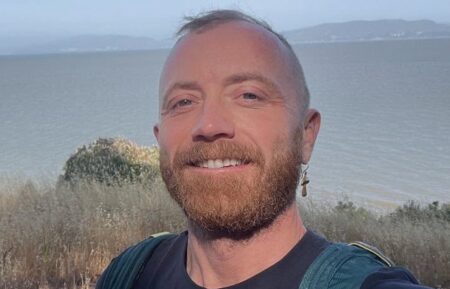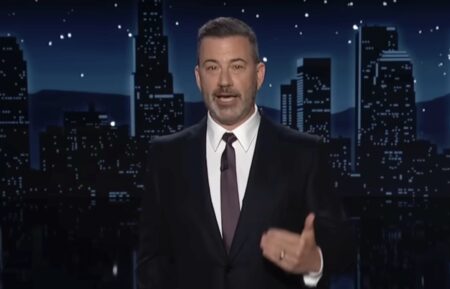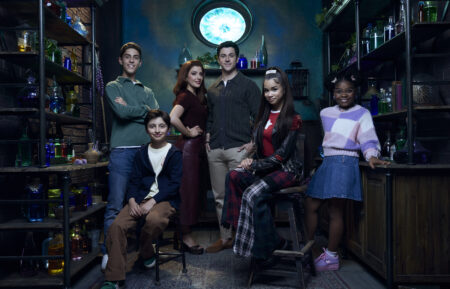‘Family Secrets: The Disappearance of Alissa Turney’ Directors on Sister’s Pursuit of Truth & Justice
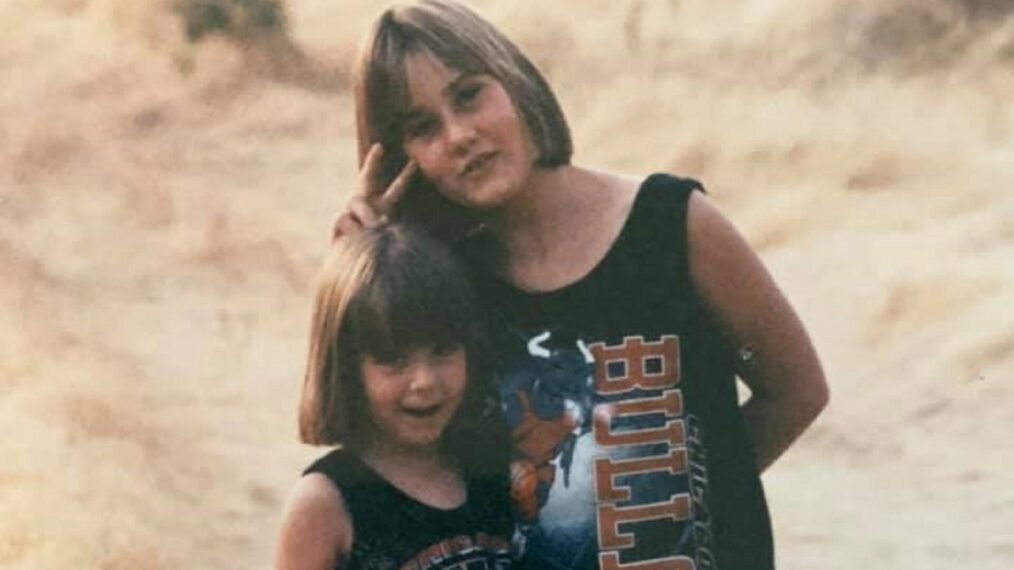
Q&A
Sarah Turney is on an unrelenting search for the truth of what happened to her half-sister in the new Oxygen True Crime special Family Secrets: The Disappearance of Alissa Turney. The story goes back to May 17, 2001, which was the 17-year-old’s last day of Junior year at her Phoenix high school, and the final day she was seen. There was an initial belief that the teen had run away to California after a note was found in Alissa’s bedroom. Despite her father Michael Turney denying any involvement in the disappearance, Sarah has always been convinced he killed Alissa.
Michael was finally arrested in 2020 and charged with second-degree murder, but the case was dismissed last summer. Alissa’s remains have still not been found. Sarah has not given up, launching a campaign to keep the story in the headlines. She became a viral sensation on social media, especially on TikTok, adding visibility to the case in the pursuit of justice.
The special, executive produced by Sarah, follows The Voices of Justice podcast creator and activist as she re-examines the past looking for any clues related to her missing sibling. Sarah provides unprecedented access including unearthed home movies, photos, and audio recordings to dig deeper into her and Alissa’s childhood. The doc also chronicles Sarah’s emotional sit-down confrontation with her father as she comes face-to-face with the man she believes is responsible.
After the Oxygen premiere, an extended version of the special will drop on Peacock. Here directors and fellow EPs Ricki Stern and Jesse Sweet preview the startling finds uncovered in the doc.
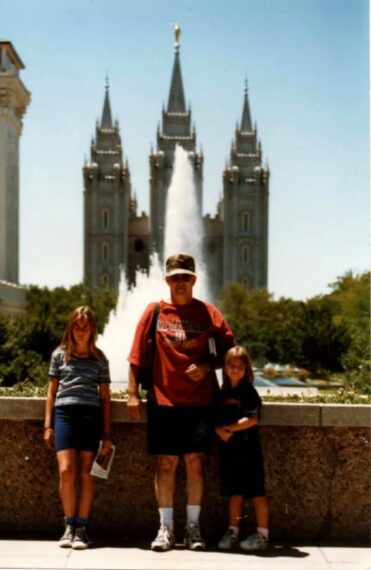
Alissa, Sarah and Michael Turney (Oxygen)
What were your initial thoughts about working with Sarah and tackling this delicate story?
Ricki Stern: I spent some time talking to Sarah. I thought what was so fascinating about the story was that when she spent, from the time she was 12 into her late 20s, believing one thing, one story. She had grown up in some ways in a very cult-like environment with her dad, who was creating her reality. It’s an interesting story about memory in a lot of ways. It was her having to go back and re-examine her life to see if her reality was happening. She was fortunate in many ways her father had videotaped everything. She went back through the videotapes, and audio recordings to really piece together the truth.
It was through that process that opened herself to speaking with friends and family to say she had completely misread and misunderstood the reality of her sister’s life. Ultimately, she got to the place where she found her father must have been responsible for her sister’s disappearance. For us, it was an interesting look because there was so much material where you go back and piece together what truly happened. You start looking for clues and suggestions that maybe what she had been told from her father was in fact not true. I think creatively that was a good jumping off point of telling her story.
Jesse Sweet: I think the other thing that was interesting for us as filmmakers on this was not just the story of Sarah, Alissa and her father, but how Sarah was changing the paradigm of true crime. We all worked in true crime before, but Sarah has this mission to not just bring justice to her sister, but try to make it a more humane type of storytelling that centers on victims and their families. We took that into developing the project with Sarah.
How do we not just bring justice to the story but capture it in a way that’s changing the landscape of true crime? The unique thing about this is Sarah has done 30 hours plus of podcasting. We were able to access her thoughts through that and as we spent time with her. Then it became how we capture the intimacy of Sarah’s perspective and center it on her emotional journey. Getting into what impacts this type of storytelling has and how it can be used in a positive way.

Oxygen
The fact she is taking this active role in investigating and trying to get to the heart of the matter. It’s interesting to take that perspective too.
Ricki: I think for us it was also very important to work with Sarah in a collaborative way to have her voice. It is told through her memories and her voice. Working with her to understand the evolution of her thinking. The process of coming to terms with everything. In some ways, it’s difficult to be able to go back and reflect on the world you grew up with through your eyes from 12 to your late 20s without it being colored with what she ultimately came to know about her sister’s childhood and father’s involvement in the disappearance. It’s not as easy to portray that child-like innocence she had because she has been through the process and came out the other side. For her, it’s hard for her to look back at what were thought to be happy memories and feel the same joy of going to Disney or fishing on the pier with her sister because everything now is color.
Jesse: She is very much an agent in this who is taking control of the narrative and raising awareness that some good does come out of her personal tragedy. We try to capture this at the end of the film too. She really has inspired a lot of people. We thought about how we could use this story to raise awareness and break cycles of generational abuse.
Having access to these home movies, what were some of the eye-opening conclusions you developed from watching the footage? There are moments when you see how the dad is with his daughters and it makes you think, “Wait a minute. What’s going on here?”
Ricki: The videos are interesting because there were definitely moments where you see the father being incredibly controlling and even manipulative. Saying things like, “Look, Alissa can read,” demeaning her. In some ways, it can be subtle. Something may not appear dark or nefarious, but when you piece it all together and understand in many ways the people around Sarah. Not Sarah because she was young and all she had in the world is her father because her mother died of cancer. People around her were suspicious. They were feeling his control, yet nobody really acted. Nobody moved to alert anybody. They didn’t come together. The pieces were not put together until Sarah herself put the pieces together. For us, that was really important. This really came down to the sister Sarah saying, “This isn’t right. We need to reexamine this. Something needs to be done. We need to pursue justice.”
She sits down with her dad, the person she thinks took her sister away. What did you make of their interactions?
Jesse: We knew Sarah from the beginning wanted to confront her father since he got off. She hadn’t spoken to him in years. She spent time researching and piecing her own case in a way nobody else had. As part of getting closure on that, she wanted to confront her father with that. We didn’t know if it would happen. One thing we saw is he sort of does like to explain people to death. We know he likes to talk. We knew he wanted the chance to overtalk Sarah into believing what he said again. She called him and set up the meeting. It was one of those livewire moments where you don’t know what will happen. He has this explosive past. There are all these layers of animosity between them.
I will say she had it all very well planned out. I think the last time she talked to him he hijacked the conversation. She was methodical in what she wanted to ask him and wasn’t going to let him dominate the conversation by being overly verbose. She had the facts ready and confronted him. I think some of the most telling moments from that are the little ways you can tell when he leans forward and tries to intimidate her with body language and cutting her off. I think a testament to her growth was knowing the tricks and if he tried them, she would know how to move past it. There is this moment where you see this family dynamic that had been developing for decades come to a head.
Tell me about the extended edition of Peacock.
Ricki: I think the extended version was really important. There are some wonderful moments we couldn’t fit into the Oxygen tighter edit. It’s an opportunity to spend more time and see a more nuanced story unfold. You get to hear how the friends feel about Alissa’s dad. You hear more about Sarah’s point-of-view of Alissa. When you’re crafting such a long story into essentially an 80-minute or 90-minute piece, you’re losing those anecdotes that take longer to play out. That’s what you will get. I think there are more stories and feelings overall for the environment that Alissa grew up in. A little more of the confrontation between Sarah and her father.
Jesse: With that extended running time you’re able to open up and let things breathe a little. You get those additional details and paint more of the picture of this complex psychological story.
After all Sarah has been through, what is it like for her to have this story told and use this platform to maybe help the cause?
Jesse: Sarah has a very devoted audience to her podcast where she is now taking on the role of providing this opportunity for other families who have loved ones disappear and creating the opportunity for people to tell their stories and have ownership over their stories.
Having this on Oxygen and Peacock, it’s again an opportunity to get Alissa’s story out there. On many levels, it speaks to victims of manipulation, sexual abuse, and crimes that have not been solved that go beyond the law enforcement’s ability. I think it highlights what an individual can do to keep their loved one’s story alive. To put attention to it, so it may help solve the crime and find justice. Sadly, thus far in Sarah’s case, Alissa hasn’t been found. Sarah is still hopeful. She is hopeful that by putting this story out there may be leads or incentivize law enforcement to continue the search for her sister. That would bring her ultimate peace.
Family Secrets: The Disappearance of Alissa Turney premiere, October 13, 8/7c, Oxygen
The extended version of the special premieres October 22 on Peacock




